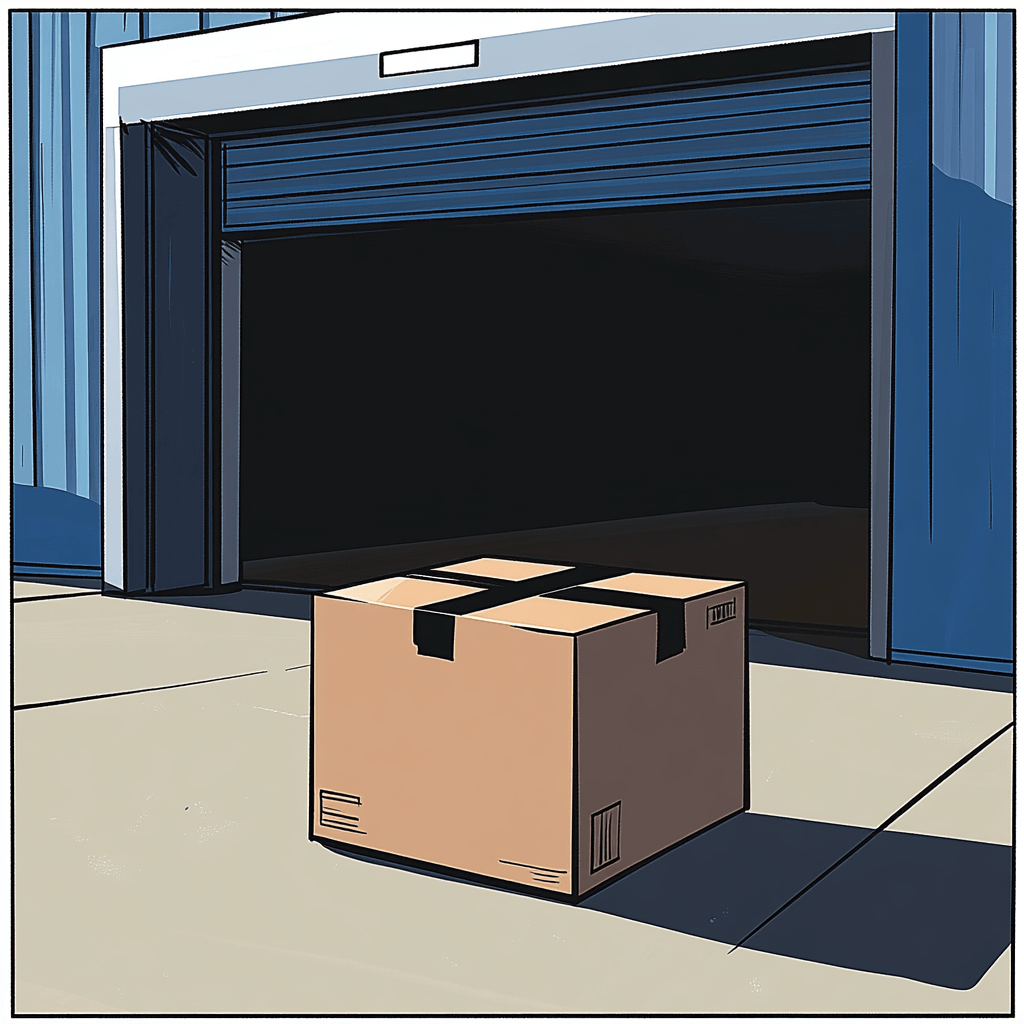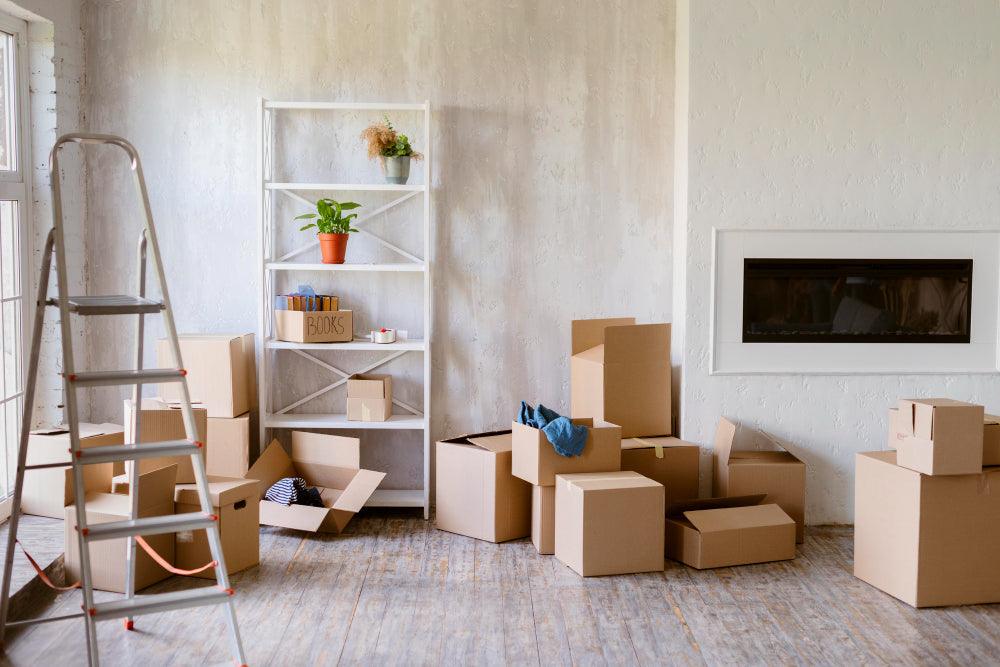You’ve got a business that’s thriving and you’re running out of space faster than you can say “inventory overload.” Or maybe you’re someone who’s always on the go and the idea of shipping items to a storage unit sounds like the convenience dream you never knew you needed.

But before you start imagining stress-free deliveries and endless storage space, there’s a question that needs answering…
Can you really ship items directly to a storage unit? And more importantly, should you?
Let’s break it down. Yes, it’s possible to ship items to a storage unit. But like most things that seem too good to be true, there’s a catch – or three. While some storage facilities will happily accept deliveries on your behalf, others won’t touch them with a ten foot pole. And then there’s the fine print: costs, policies, and potential headaches that might make you rethink the whole idea.
In this blog, we’re going to dig into the complexities of shipping to storage units. From the types of facilities that offer this service to the hidden costs that could make your convenience a little less, well, convenient.
Types of Storage Units That Accept Deliveries
First things first, not all storage units are created equal. When it comes to accepting deliveries, the type of storage facility you choose can make or break your plan. Let’s cover a couple of options:
1. Mom-and-Pop Storage Units: The Flexible Friend

These smaller, independent storage facilities are like the cool neighbor who lets you borrow their tools whenever you need them. They’re more likely to offer flexible services, including accepting deliveries.
Why?
Because personalized service is their bread and butter. They understand that their customers have unique needs and they’re often willing to go the extra mile (or in this case, accept that extra package) to keep you happy.
But don’t let the friendly vibes fool you…
There’s still a process to follow. You’ll need to confirm that they accept deliveries, understand their policies and potentially pay a little extra for the service.
2. Corporate/Chain Storage Units

On the flip side, we have the corporate giants. Think of them as the strict sibling who follows the rules to the letter. These larger storage companies often have stricter policies and delivery acceptance is usually a no-go. There might be exceptions but they’re about as rare as a stress-free Monday morning.
If you’re set on using a corporate storage unit, it’s essential to do your homework. Some may offer package acceptance as an add-on service but you’ll likely face higher fees and more red tape.
Why Some Storage Units Accept Deliveries…And Some Don’t
So why do some storage units offer this service while others don’t? It boils down to two key factors: personalized service and customer convenience.
1. Personalized Service – The Mom-and- Pop Advantage
Smaller operations thrive on offering services that cater to individual customer needs. If you’re a business owner who needs regular access to shipped goods or if you’re someone who’s constantly receiving packages, a storage unit that accepts deliveries can be a game-changer.
For these facilities, it’s all about making life easier for you. And keeping you as a loyal customer.
2. Customer Convenience – Meeting the Need
For businesses and individuals alike, convenience is king. Storage units that accept deliveries cater to customers who value time and efficiency. If you’re shipping items regularly or need a reliable place for your packages to land, this service can be a lifesaver.
Just be prepared to pay for that convenience.
Complexities and Challenges

Alright, so you’ve found a storage unit that accepts deliveries. Great! But before you start shipping boxes to your heart’s content, there are a few hurdles to consider.
1. The Fine Print
Even if a storage unit accepts deliveries, you’re not off the hook yet. You’ll need to get the explicit permission from the facility and familiarize yourself with their specific policies. Some might only accept deliveries during certain hours while others may have restrictions on the types of items they’ll store.
2. Who’s Responsible?
Here’s where things get tricky. If a package is lost, damaged or goes missing before you pick it up, who’s responsible? This is a gray area and liability can vary depending on the facility. Some storage units might offer limited liability while others will have you sign a waiver that puts all the responsibility on you.
It’s crucial to clarify this before you start shipping.
3. Timing is Everything
Unlike your Amazon Prime deliveries, which seem to appear out of thin air, shipping to a storage unit requires coordination. Someone needs to be present at the facility during business hours to accept the delivery.
Miss the window, and your package could end up in limbo – or worse, back to the sender.
4. The Hidden Costs
Convenience comes at a price. Some storage facilities may charge extra fees for receiving and handling deliveries. These charges can add up quickly, especially if you’re shipping multiple items or require special handling.
How to Ship Items to A Storage Unit

If you’ve weighed the pros and cons and still think shipping to a storage unit is the right move for you, here’s a step-by-step guide to ensure everything goes smoothly.
Step 1 - Confirm with the Storage Facility
Before you do anything, pick up the phone or shoot an email to your storage facility. Confirm that they accept deliveries and ask about their procedures. Do they require advanced notice? Are there specific hours for deliveries? Get all the details upfront to avoid any nasty surprises.
Step 2 - Coordinate Delivery Timing
Timing is everything. Arrange for your delivery during the storage facility’s business hours and if possible, provide the delivery service with a contact at the facility who can accept the package on your behalf.
Step 3 - Provide the Correct Shipping Address…Duh
Okay, this goes without saying but I’ll say it anyway. DOUBLE CHECK the shipping label. God forbid, you get it wrong. It’ll mess everything up. It should also include the storage facility’s address, your unit number, and any specific instructions for the delivery driver.
The more detailed you are, the smoother the delivery will go.
Step 4 - Be Prepared to Pay Additional Fees
Remember those hidden costs we talked about? This is where they come into play. Be prepared to pay extra fees for receiving, handling, and storing your packages. It’s a good idea to ask about these fees in advance, so you know exactly what you’re getting into.
Step 5 - Follow Up
Once the package is delivered, don’t just assume everything went off without a hitch. Follow up with the storage facility to confirm that your package was received and is securely stored. Peace of mind is priceless.
When It Might Make Sense to Use This Service
So, when is shipping to a storage unit actually worth it? Here are a few scenarios where it might make sense…
- Online Retailers or Small Business Owners
If you’re running a small business and need extra storage for inventory, shipping directly to a storage unit can save you time and hassle. Just make sure the facility is equipped to handle your deliveries efficiently.
- Frequent Travelers
If you’re always on the go and don’t have a reliable address for package deliveries, a storage unit might be the perfect solution. You can have your items shipped directly to the unit and pick them up at your convenience.
- Relocation and Moving
Moving long-distance? Shipping items directly to a storage unit at your destination can simplify logistics. Just be sure to coordinate closely with the facility to ensure everything goes smoothly.
Costs Involved

Here’s the reality check: shipping to a storage unit isn’t always cheap. In addition to regular shipping costs, you might face extra fees for handling, storage, and even liability insurance. These costs can add quickly, making what seemed like a convenient solution a potentially pricey one.
Before you commit, do a cost-benefit analysis. Compare the cost of shipping to a storage unit with other options, like using a mailbox service or coordinating with a trusted friend or family member.
Alternatives to Shipping Directly to a Storage Unit
If the costs or complexities of shipping to a storage unit are giving you pause, here are some alternatives to consider…
- Using a Mailbox Service
Businesses like UPS and FedEx offer mailbox services that can receive packages on your behalf. This might be a better fit if you only need to store small items or documents.
- Amazon Lockers and Similar Services
If you’re dealing with smaller items. Amazon Lockers and similar services can be a convenient and cost-effective solution. Just pick up your packages at your convenience without worrying about coordinating with a storage facility.
- Coordinate with a Trusted Friend or Family Member
Sometimes, the simplest solution is the best one. If you have a friend or family member who lives nearby, consider asking them to receive packages for you. It’s a low-cost, low-stress option that might save you a lot of hassle.
- Use Juujbox in San Diego
If you're in San Diego, Juujbox provides a very simple "ship to storage" solution. Items are priced by the box, received by the team at the warehouse, stored, and delivered to your final destination in San Diego when you need them.
The Wrap Up
Shipping to a storage unit can be a convenient solution for business owners, frequent travelers, or anyone in the middle of a move. But it’s not without its challenges and costs.
In some cases, shipping to a storage unit might be the perfect answer to your storage needs. In others, it might be more trouble than it’s worth. The key is to do your homework, weigh your options, and choose the solution that best fits your needs.



